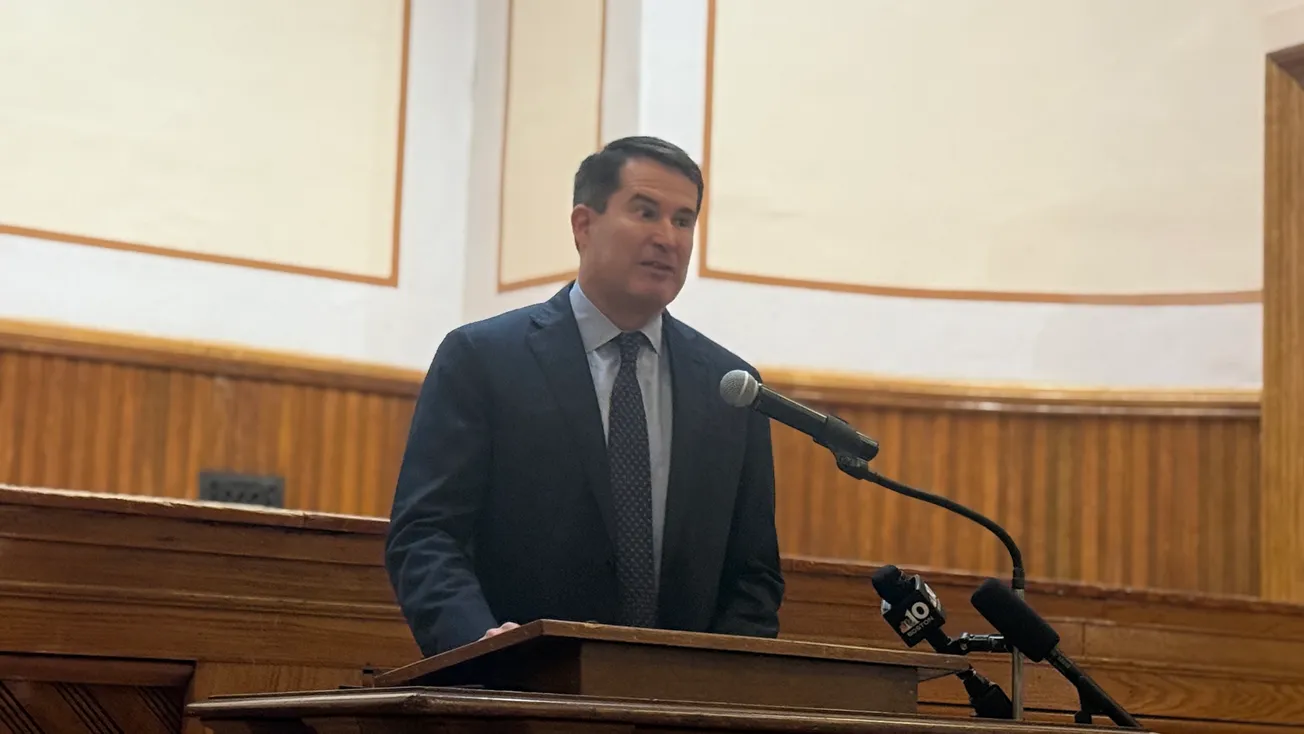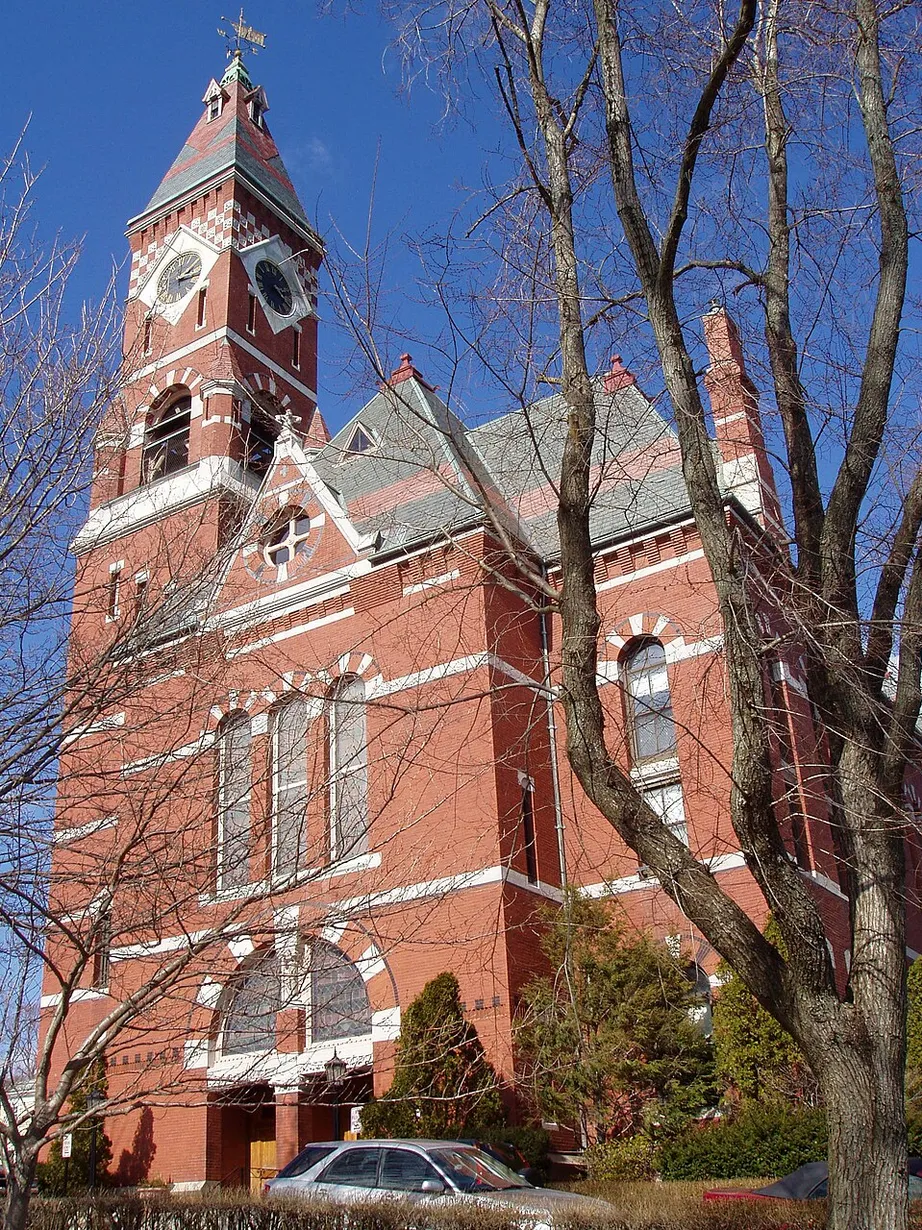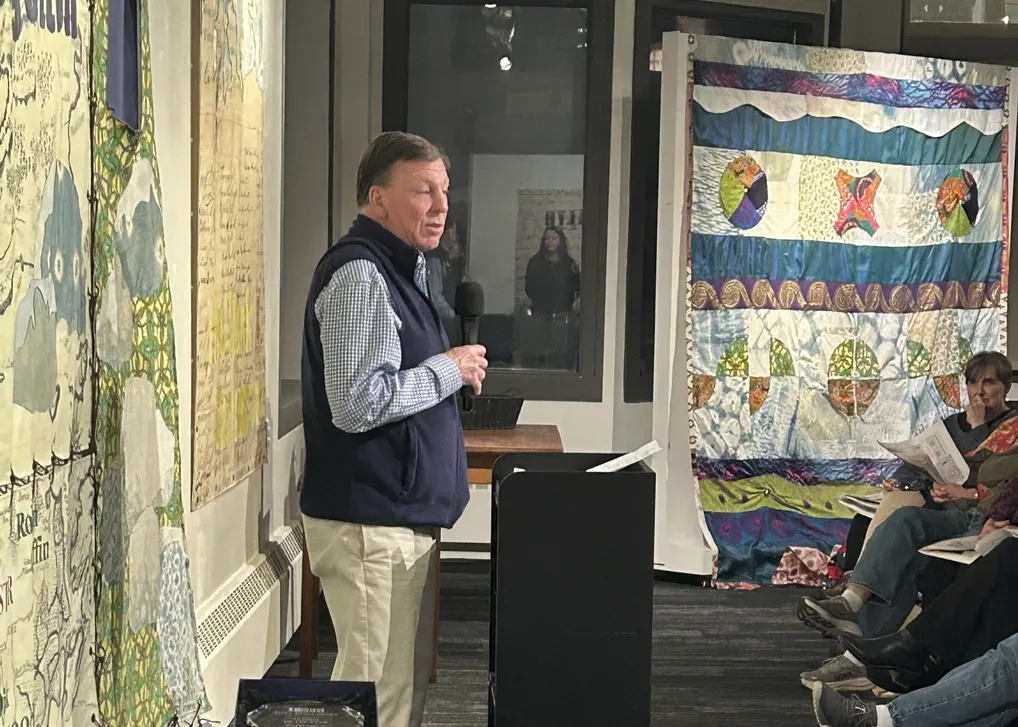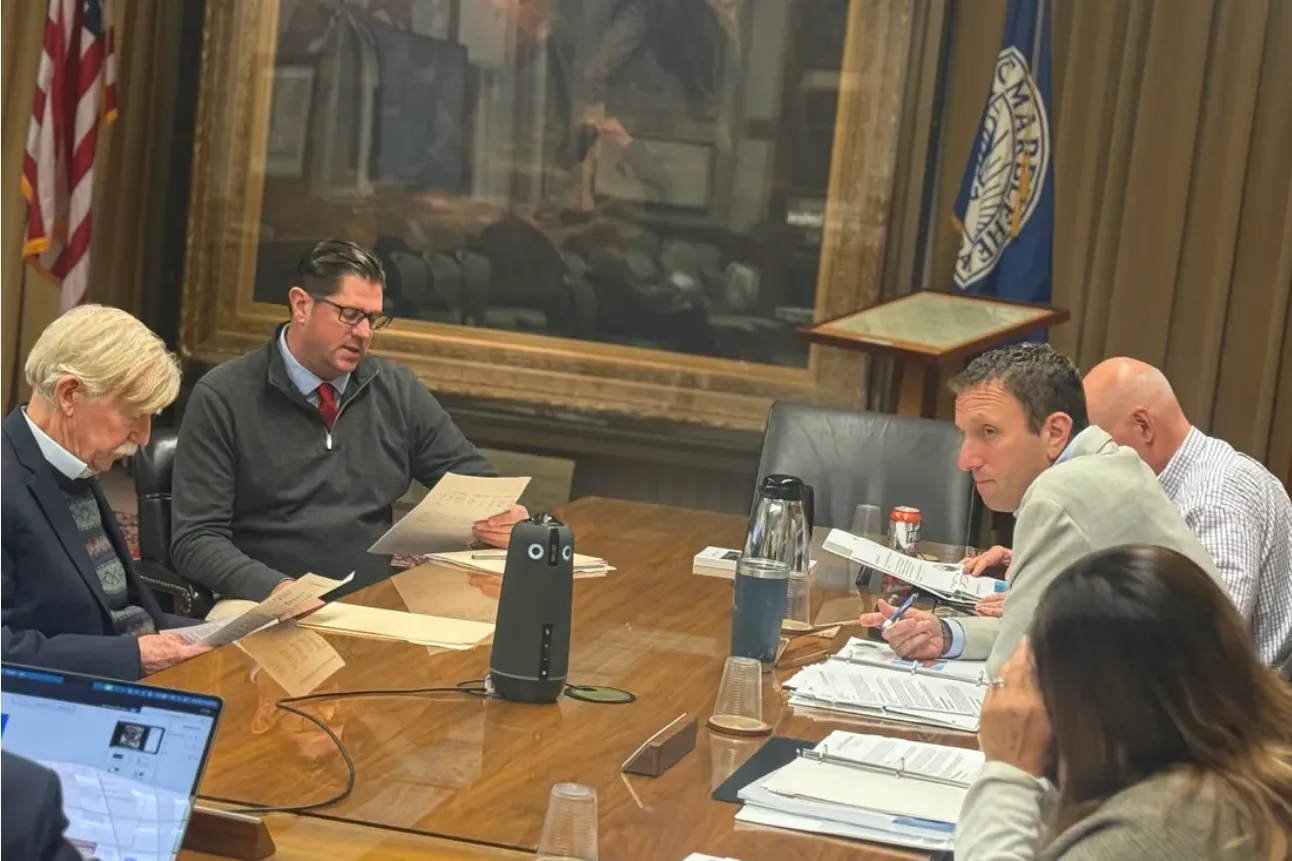Table of Contents
Stories of service, remembrance and civic life define Marblehead. Our weekly newsletter gathers them in one place — clear, local, and free to all — sign up.
On the eve of Veterans Day, about 200 people gathered at Abbot Hall to listen as veterans from conflicts spanning seven decades shared stories of combat, loss, family legacy and the bonds forged through military service.
The 11th annual Veterans Town Hall, hosted by Rep. Seth Moulton, offered veterans a platform to speak without interruption or questions in what author Sebastian Junger once described as "a sacred space" where ordinary life is suspended to honor those who served.
Moulton, a decorated Marine who completed four tours in Iraq, opened the event by describing a moment when he diverted from a wedding in California to help a struggling Marine from his platoon reach a Veterans Affairs facility.
"There was no place I would have rather been, and that's because of the brotherhood that we shared from that platoon," Moulton said. "I think this is something that is important for the community to understand about those of us who served together, we went through some of the worst days of our lives tomorrow, and those relationships are so important that we treasure them even in the darkest moments."
Legacy of service across generations
The evening's speakers represented every branch of the military and conflicts from Vietnam to Afghanistan, each bringing distinct experiences that illustrated the varied paths to and through military service.
Reggie Brown honored the Marine Corps' 250th anniversary by recounting his family's military lineage stretching back to ancestors who escaped slavery in 1855. His great-great-great grandfathers worked in New Jersey shipyards before their descendants joined the ninth and 10th Cavalry, fought alongside Teddy Roosevelt at San Juan Hill and served in both world wars.
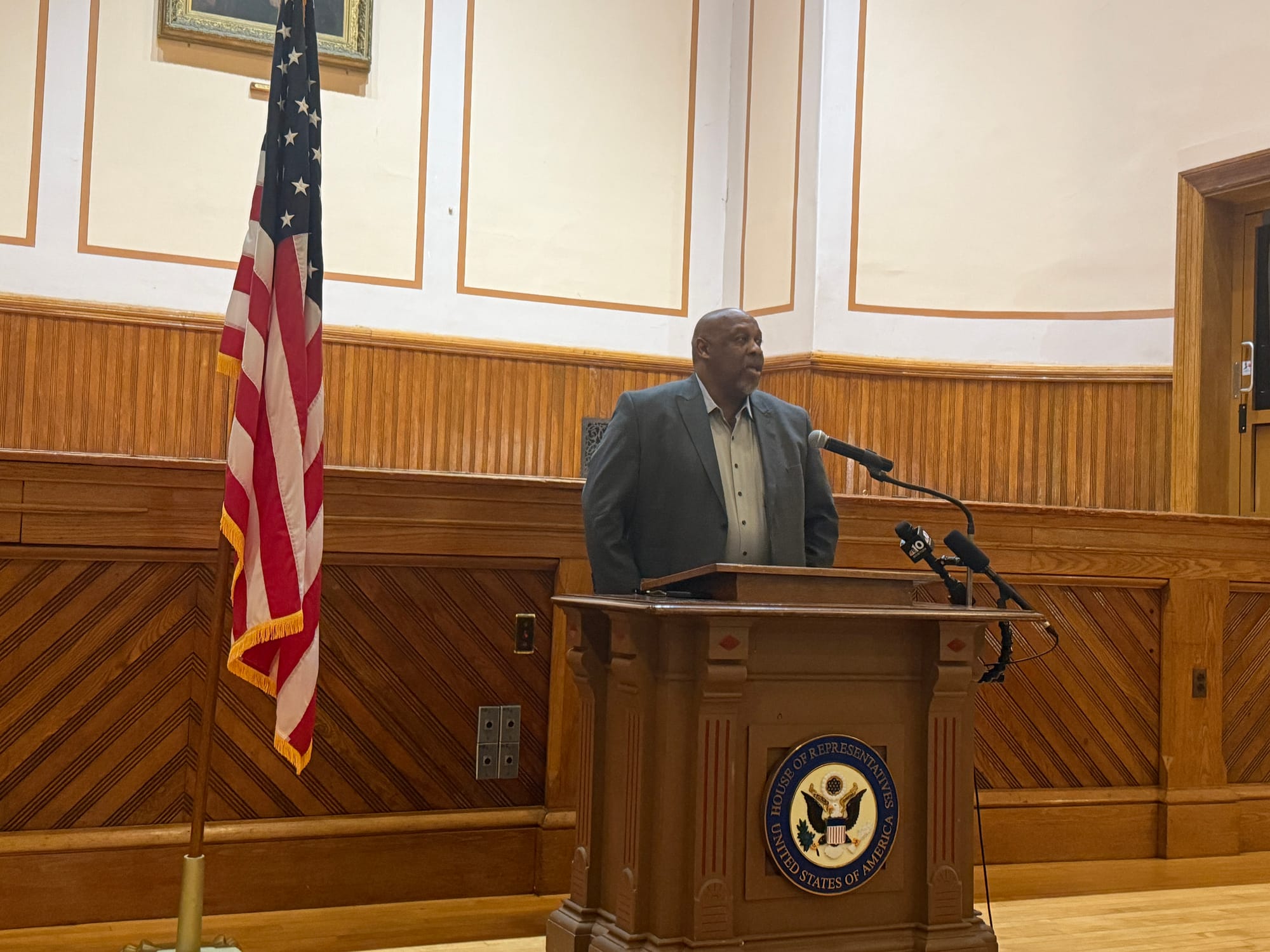
"My favorite relative was my great uncle, Roscoe Brown. He was in avian in the morning because of the stories he told me about flying in Italy during World War Two," Brown said, describing tales of escort missions to Romanian oil fields. "Those stories not just mine and my family's, but other families shouldn't be forgotten, and I think we ought to remember why."
Jim Gauthier, who served two Marine Corps tours in Vietnam and later became a Salem police detective for 32 years, shared vivid memories of jungle patrols and the arbitrary nature of combat.
From immigrant to advocate
Truc DeCoste, who deployed to Kandahar, Afghanistan from 2011 to 2012 as an Air Force tactical systems operator, traced her path to military service through family history. Her grandfather was an American soldier who fought and died in the Vietnam War, leaving behind her father.
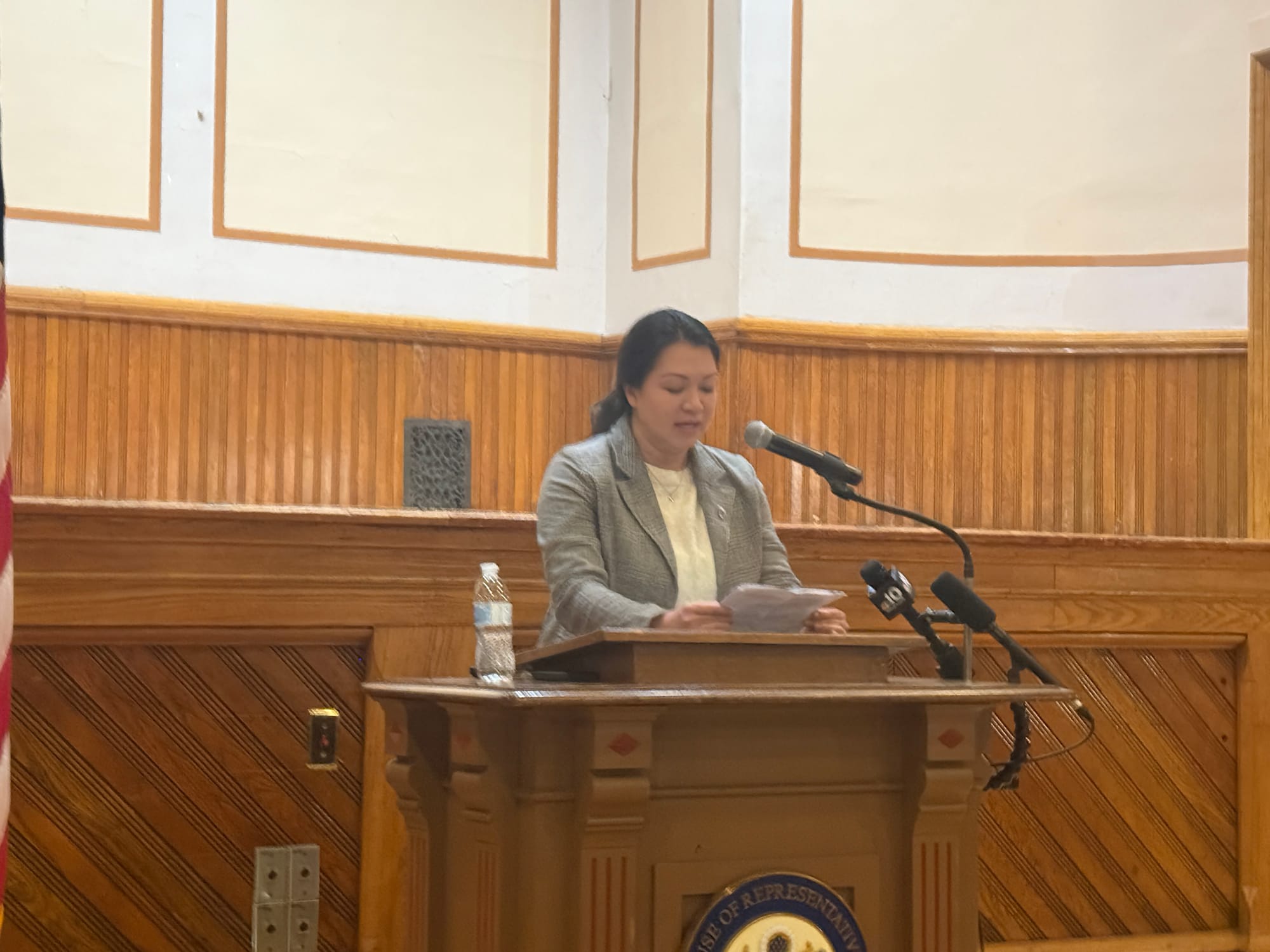
In 1991, the Amerasian Homecoming Act allowed DeCoste, her parents and their family to immigrate to Massachusetts from Vietnam with nothing but the clothes on their backs.
"My questions often led to my passions, but that curiosity planted the seed for my own time," DeCoste said of wanting to understand her grandfather's sacrifice. She became a U.S. citizen at 18 alongside her parents at the Hynes Convention Center in Boston, then enlisted in the Air Force.
"Service, my service, my grandfather's service, really was the linchpin in where I am today," said DeCoste, who now serves as Southeast Regional Liaison for the Massachusetts Office of the Veteran Advocate.
Alicia Reddin, a Navy veteran who served with Naval Mobile Construction Battalion 74 as a heavy equipment operator, emphasized how military diversity strengthens the nation. Coming from a military family spanning the Air Force, Army and Navy, she spoke of learning that leadership means trust and authenticity rather than authority.
"In a time when it feels like the world is absolutely intent on dividing us, I remind everyone to stand hard together," Reddin said. "Our strength as a nation, our strength as a military, our strength as a community, has never, ever come from being the same. It comes from standing shoulder to shoulder, different but united."
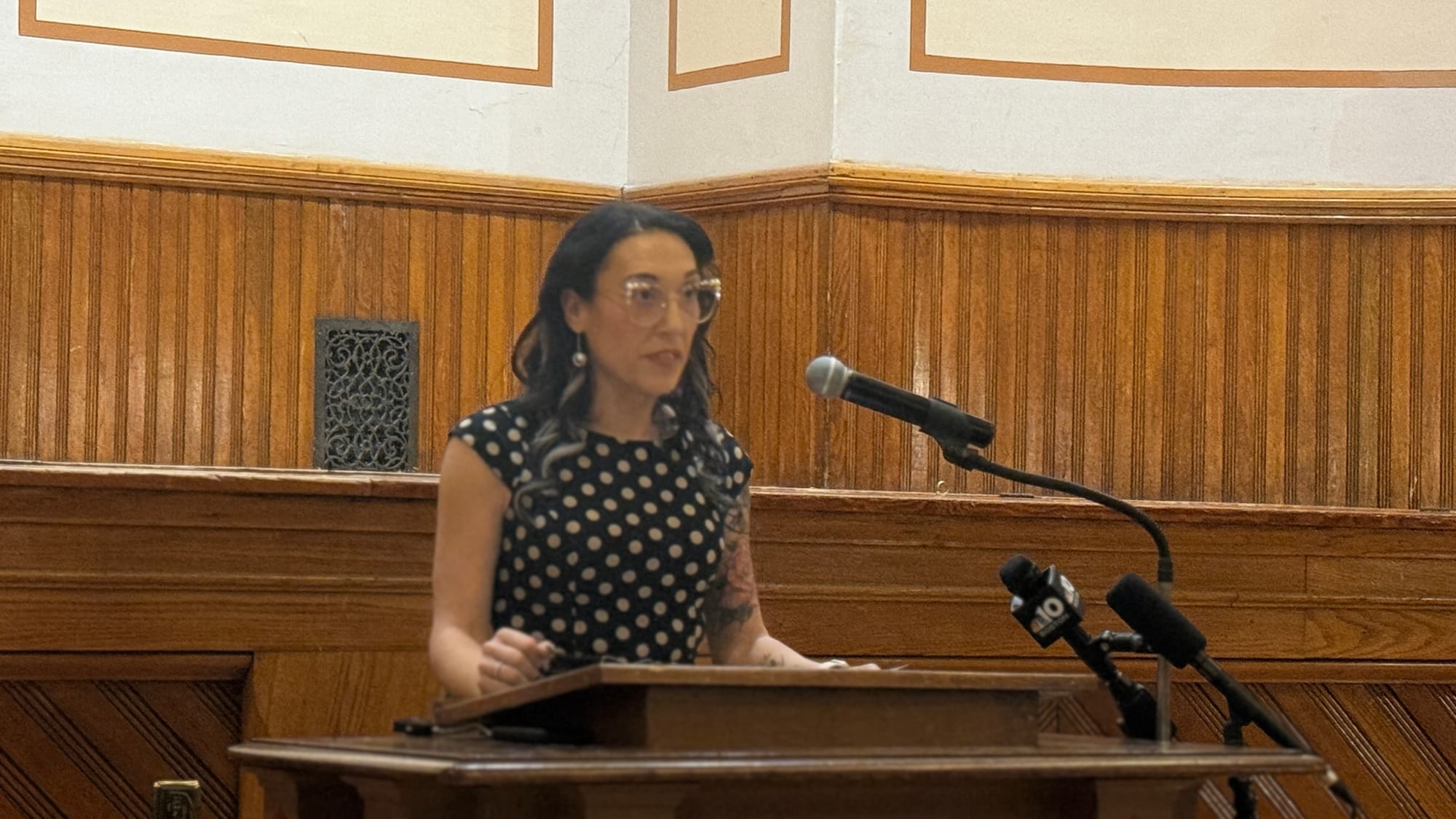
Understanding the veteran experience
Bill Carpenter, who served as a Marine supply officer from 1984 to 1987 during the Cold War era, offered context for civilian attendees: active duty and reserve forces total 2.1 million people, less than 1 percent of the U.S. adult population. Only one in 200 high school graduates enters military service, and Massachusetts ranks among the bottom three states for enlistment rates.
"A vet is someone who was trained and ready position somewhere in the world for whenever you call," Carpenter said.
Perry Kishida, who served in the Air Force from 2009 to 2016 with deployments to Afghanistan and Italy, now works as a veteran coordinator with MassHire on the North Shore, helping veterans overcome employment barriers. He shared stories of formerly incarcerated veterans finding purpose as mental health advocates and laid-off veterans launching new careers.
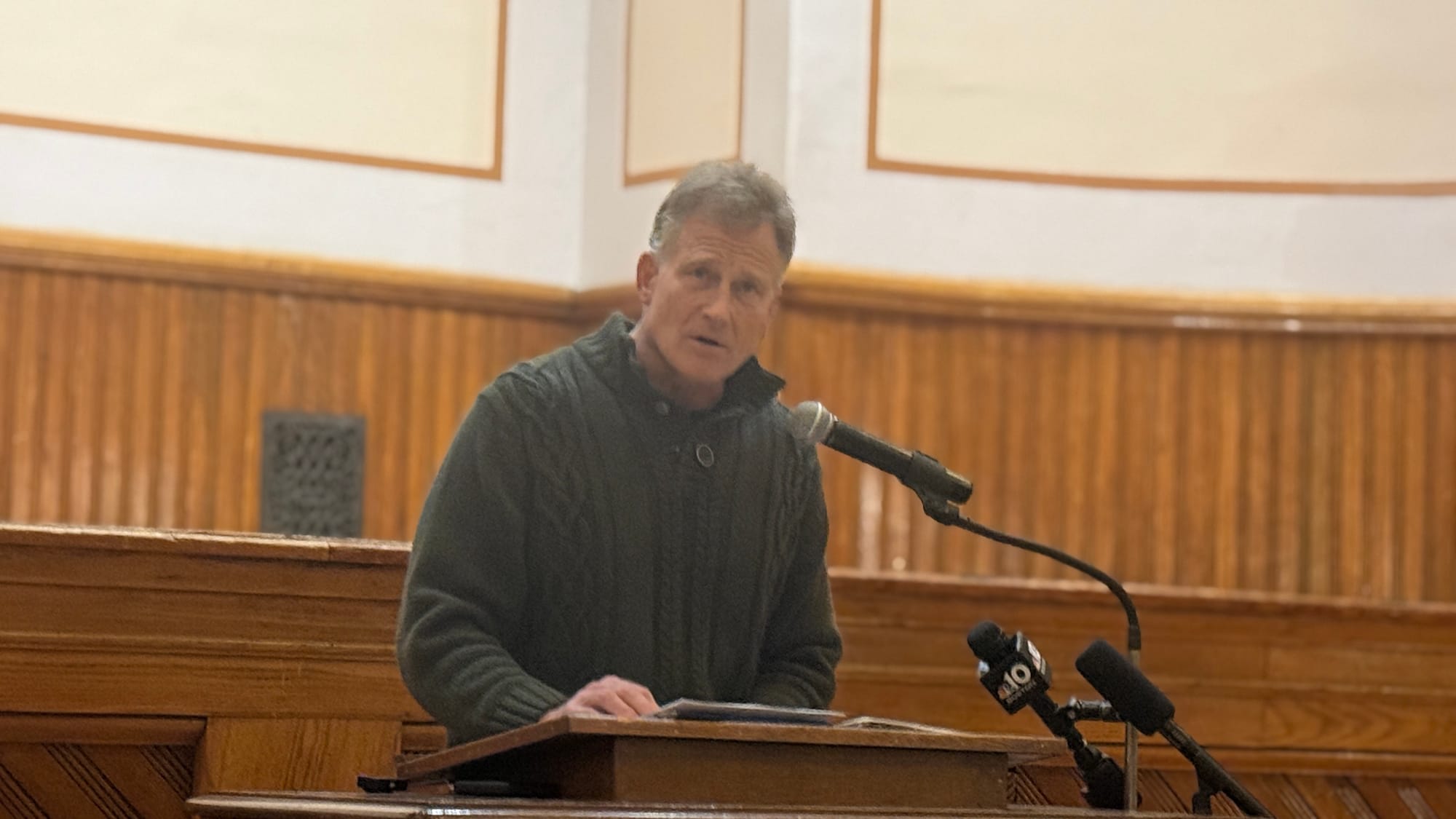
"A sergeant once told me that joining the military was the best decision I ever made, and getting out was the second best day," Kishida said. "That message still resonates today."
The Veterans Town Hall began in 2015 when Moulton partnered with Junger, inspired by Indigenous practices allowing warriors to recount their experiences. The event maintains strict ground rules: politics are left at the door, any veteran can speak and attendees simply listen.
